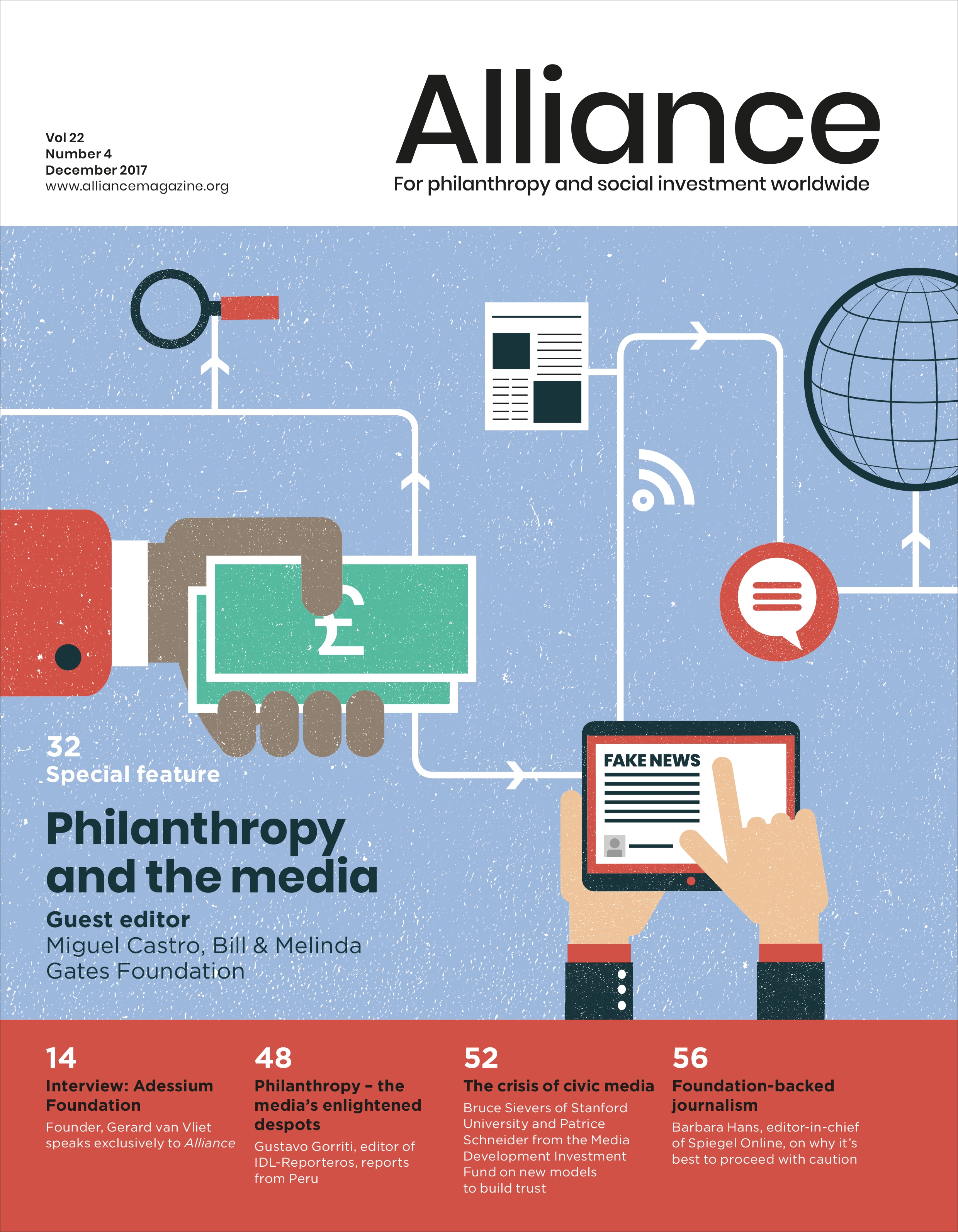Malaysiakini
The philanthropically-backed Malaysiakini in Malaysia was founded by Premesh Chandran and journalist Steven Gan in November 1999 as a space for uncensored journalism.
It has become a significant news source in Malaysia, and claims to receive over 2.3 million page views per day on desktop and mobile. While it describes its political stance as independent, it is considered pro-opposition by mainstream media (most of which are government-owned). It describes its editorial policy as supportive of justice, human rights, democracy, freedom of speech and good governance.
Indicative of its openness is a letters section that hosts the opinions of readers of all races and religions and of various ideological backgrounds, creating an open arena of public debate. It features topics less debated in the country’s media such as migrant workers, AIDS and the racial quota system. The source of its income is a matter for debate.
While the National Endowment for Democracy and others are contributors, CEO Premesh Chandran said in 2012 that foreign grants ‘form a small part of Malaysiakini’s budget’ and that it is 70 per cent owned by its co-founders. He said that the organization was ‘transparent about such partnerships’, and that editorial independence was not compromised by them.
For more see malaysiakini.com
ProPublica
An independent, non-profit newsroom, founded in 2007 on the basis that investigative journalism is critical to democracy, ProPublica describes its mission as exposure of ‘abuses of power and betrayals of the public trust by government, business, and other institutions, using the moral force of investigative journalism to spur reform through the sustained spotlighting of wrongdoing’.
ProPublica covers a range of topics including government and politics, business, criminal justice, the environment, education, healthcare, immigration, and technology, and runs, among other features, a series on President Trump and his administration. Major foundation donors named on its website include the Skoll Global Threats Fund, Open Society Foundations, the Knight, MacArthur, Hewlett and Ford Foundations.
ProPublica claims that ‘among other positive changes, our reporting has contributed to the passage of new laws; reversals of harmful policies and practices; and accountability for leaders at local, state and national levels’. It is also committed to transparent financial reporting.
For more see propublica.org
The Global Investigative Journalism Network (GIJN)
GIJN is an international association of non-profit organizations that support, promote and produce investigative journalism. GIJN holds conferences, conducts training and provides resources and consulting.
It sprang out of the 2003 Global Investigative Journalism Conference in Copenhagen and has since grown to 155 member organizations in 68 countries. In 2012, a secretariat was created to better manage its biennial conference and increase its capacity to support investigative journalism around the world.
The executive director and secretariat report to the GIJN board, which consists of members elected by GIJN membership representatives. GIJN has received core support from the Open Society Foundations since its beginnings as a loose network in 2003, as well as from the Adessium Foundation, the Ford Foundation, the Oak Foundation, the Reva & David Logan Foundation, and the Bay and Paul Foundations.
In past years additional funding has come from Google and in-kind support from the Knight Chair in Investigative Reporting in the Journalism Department at the University of Illinois.
For more see gijn.org







Comments (0)